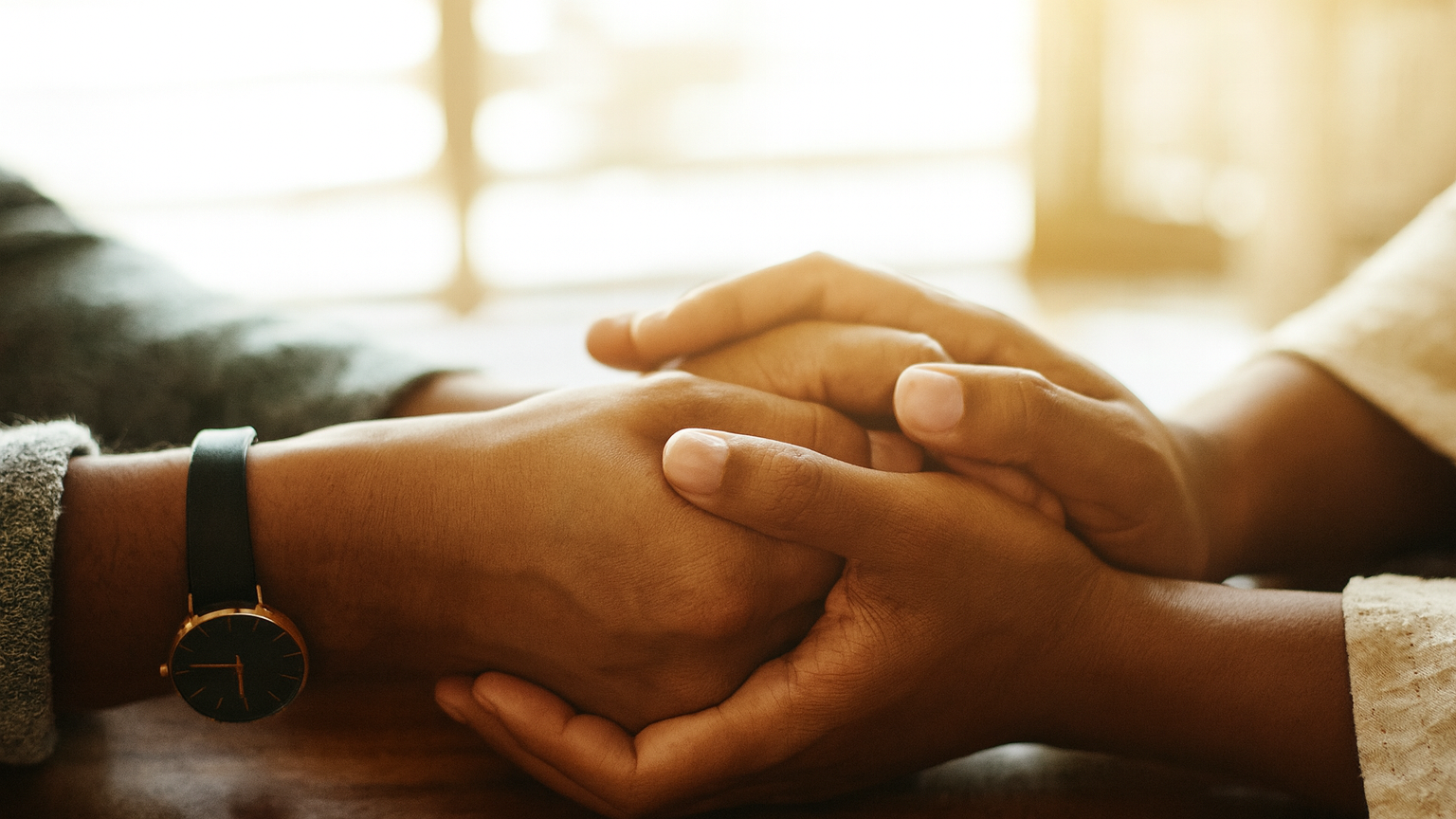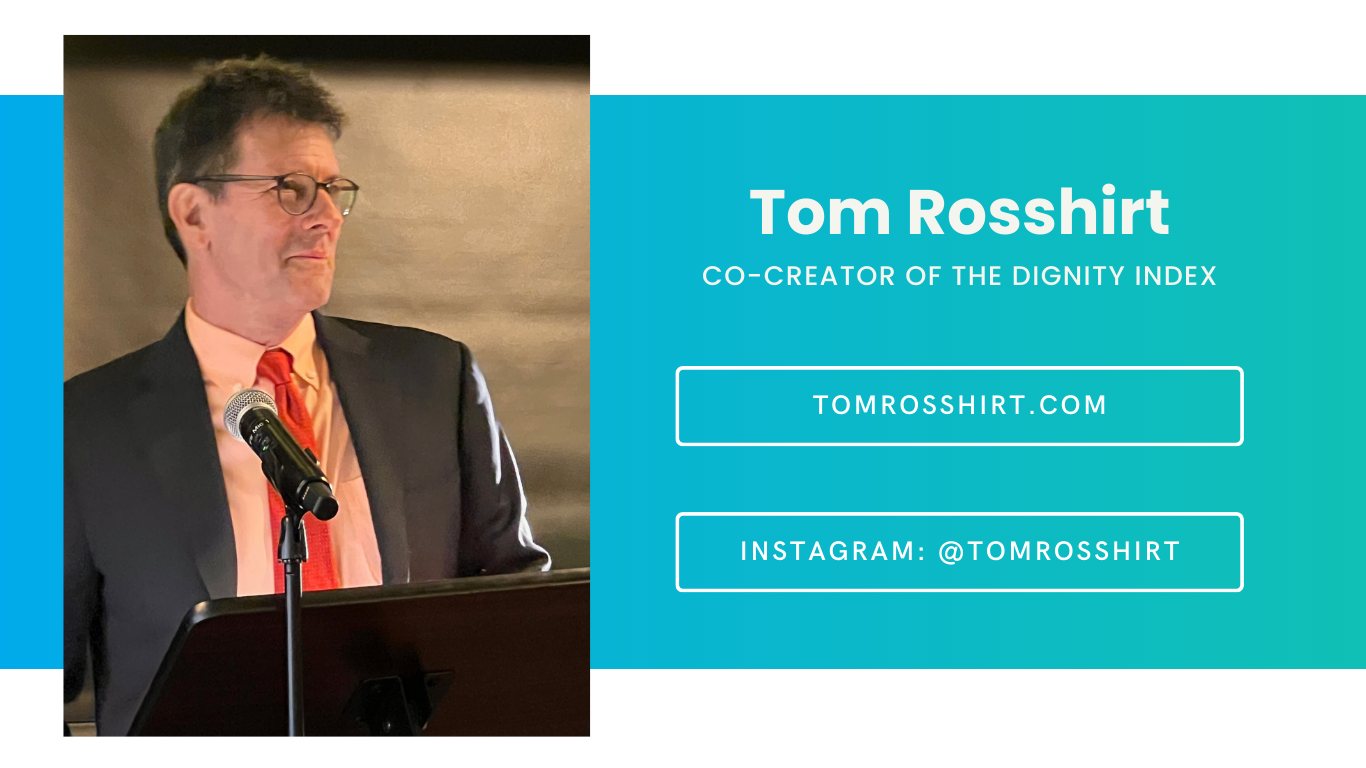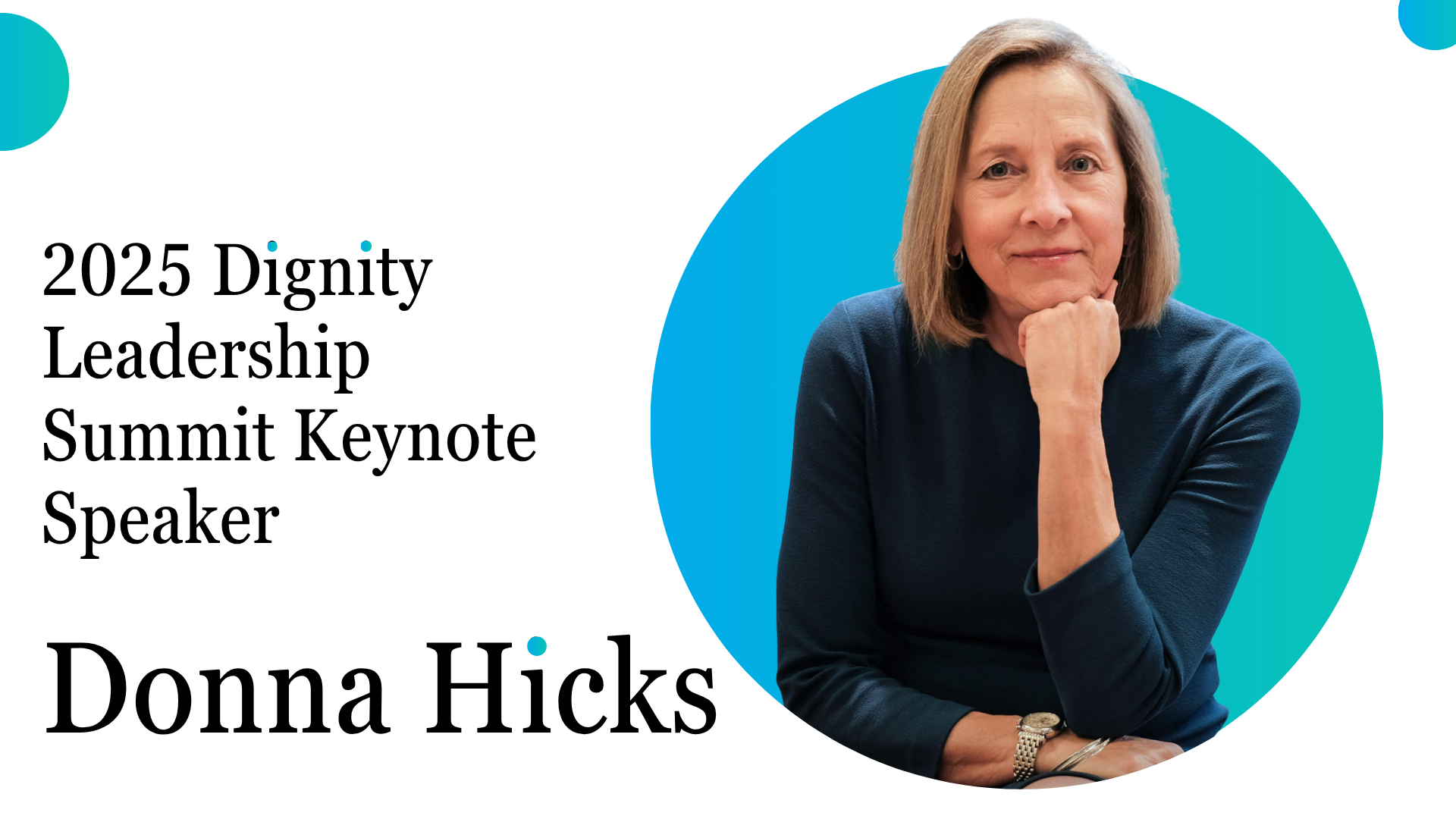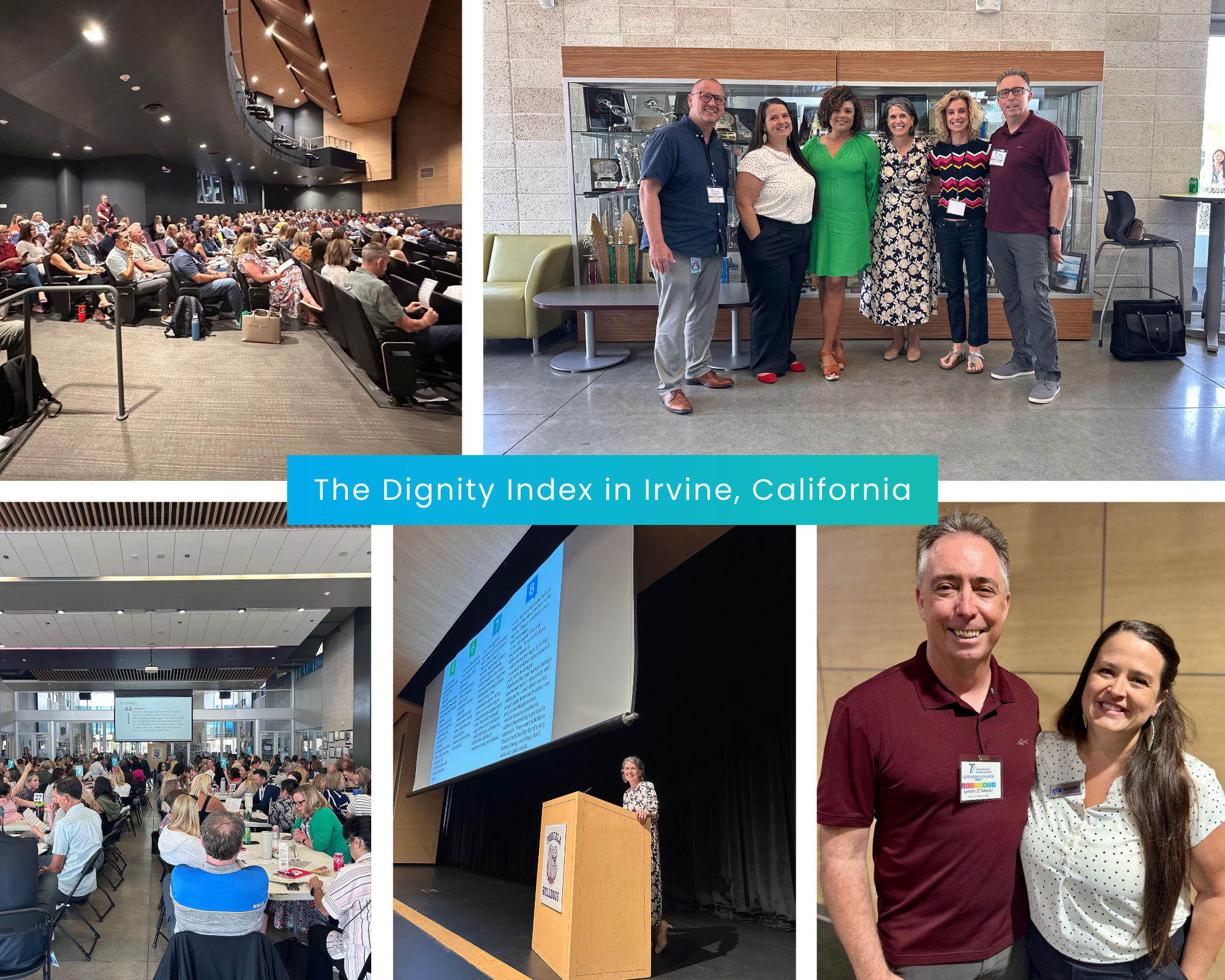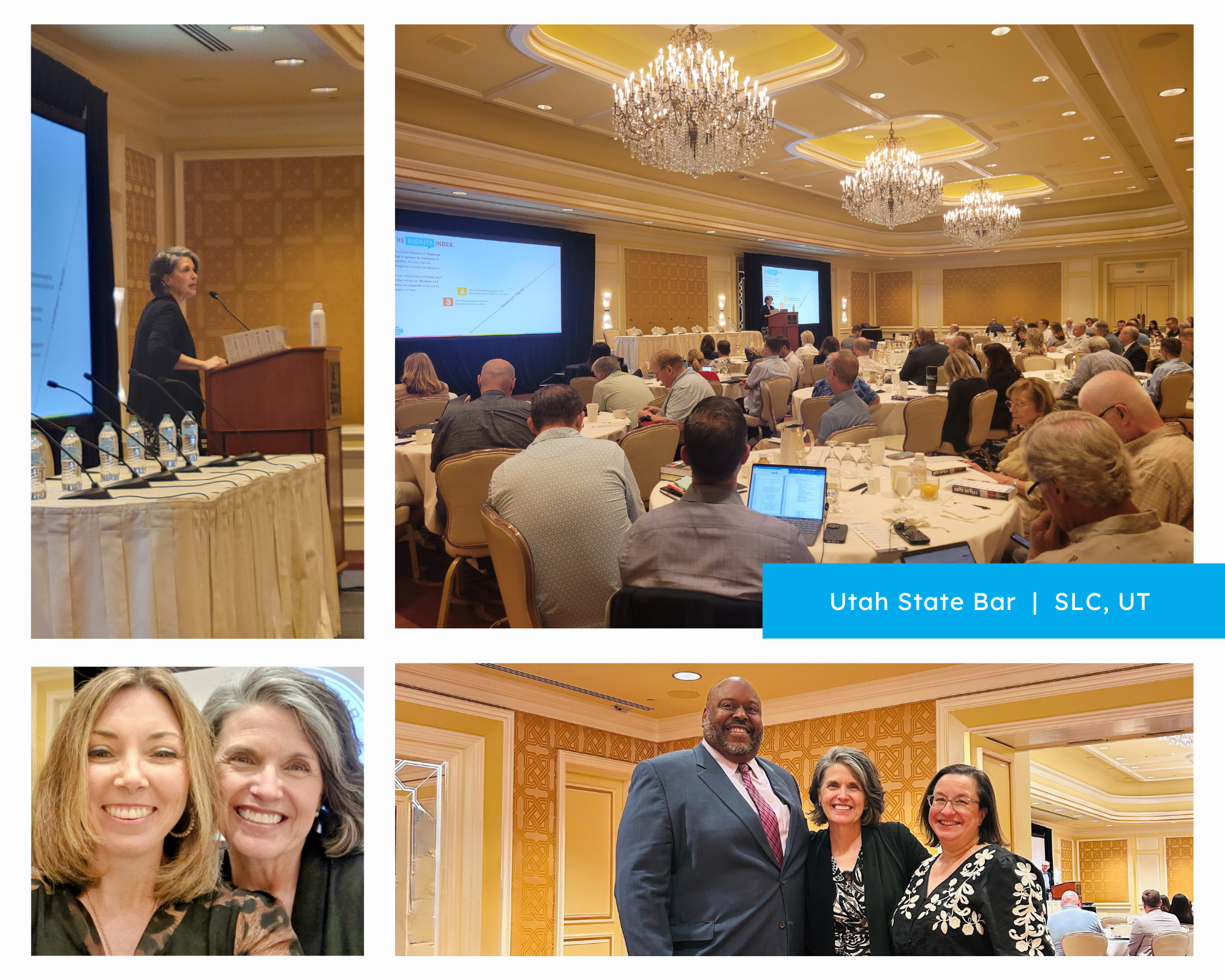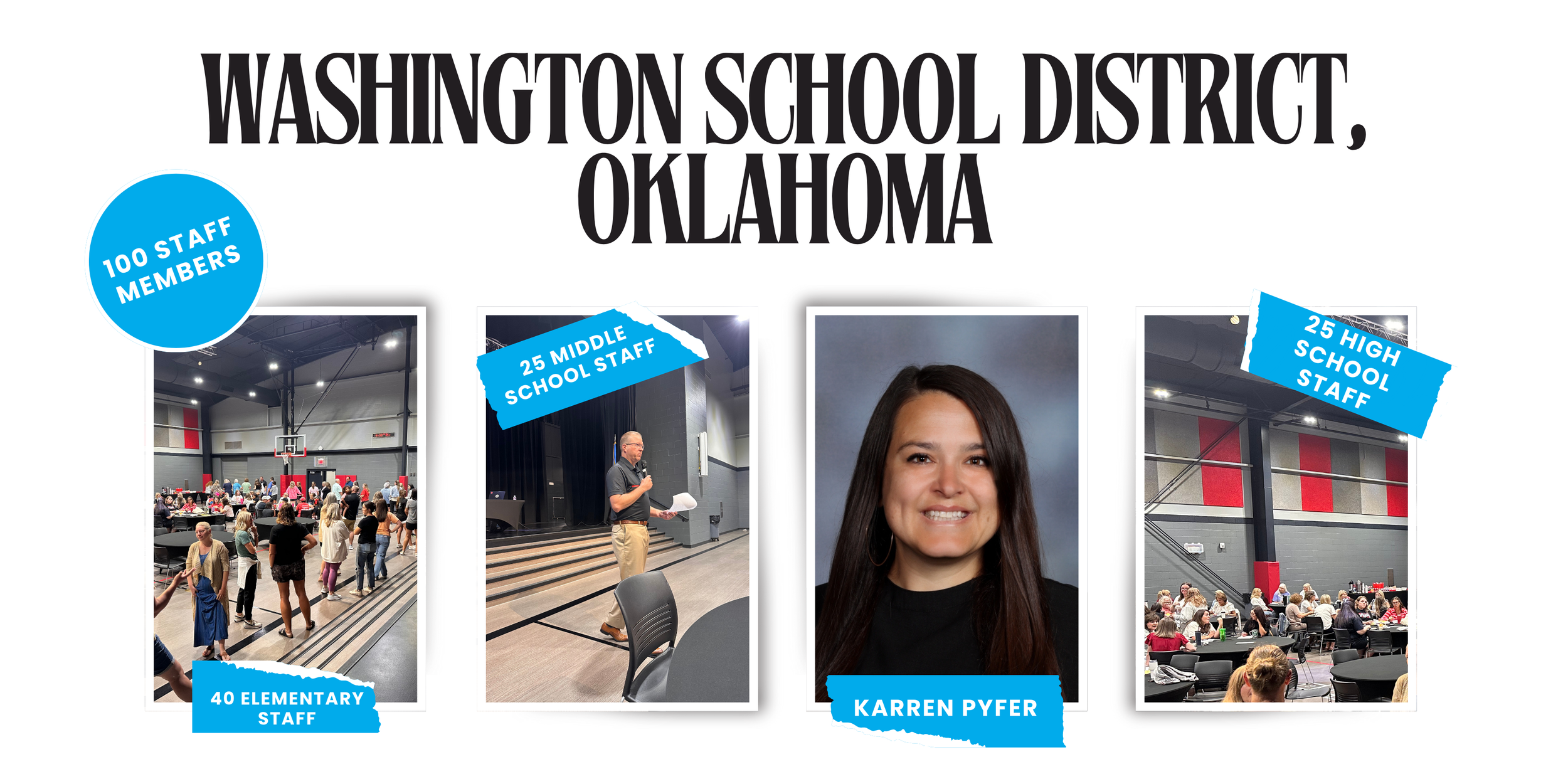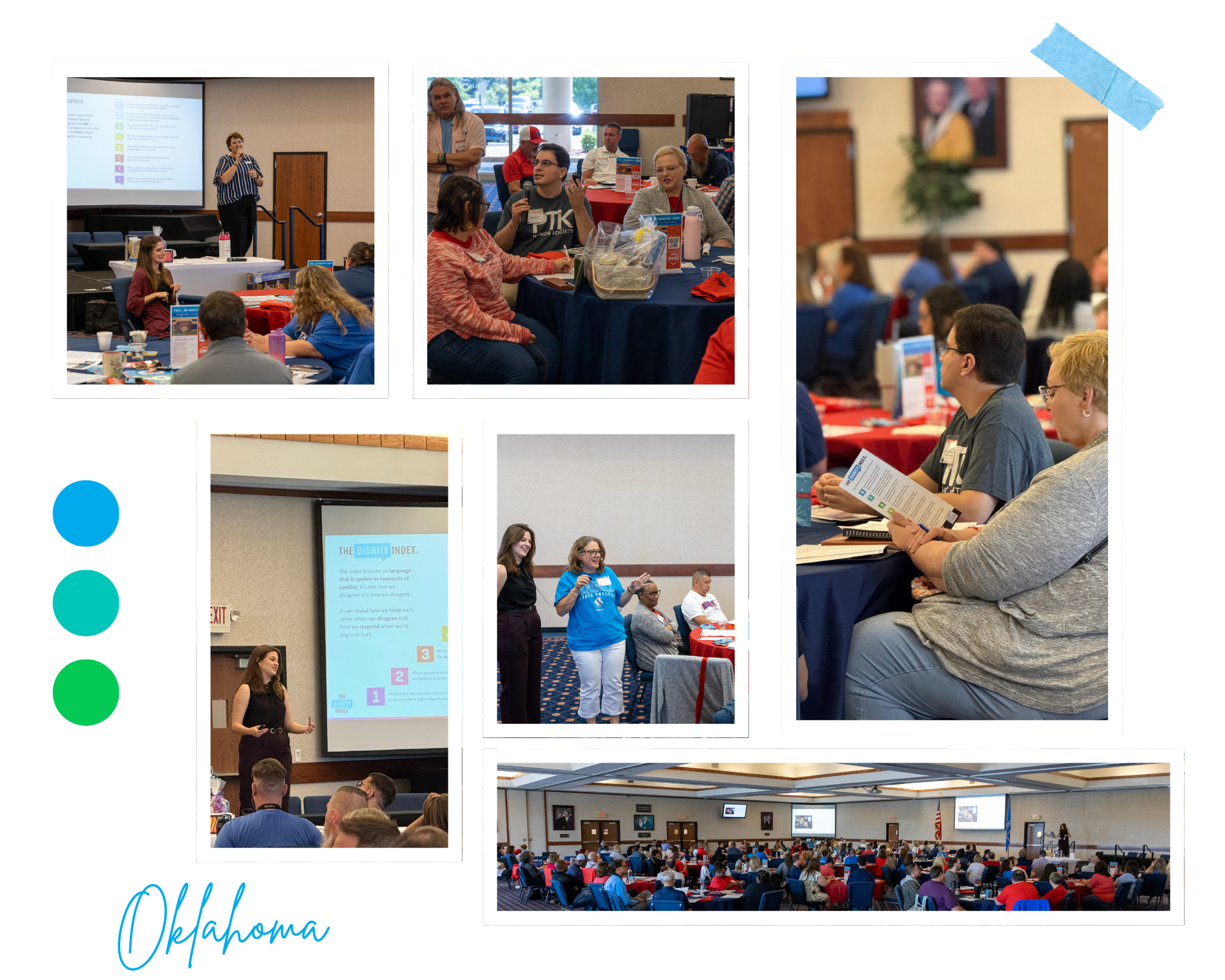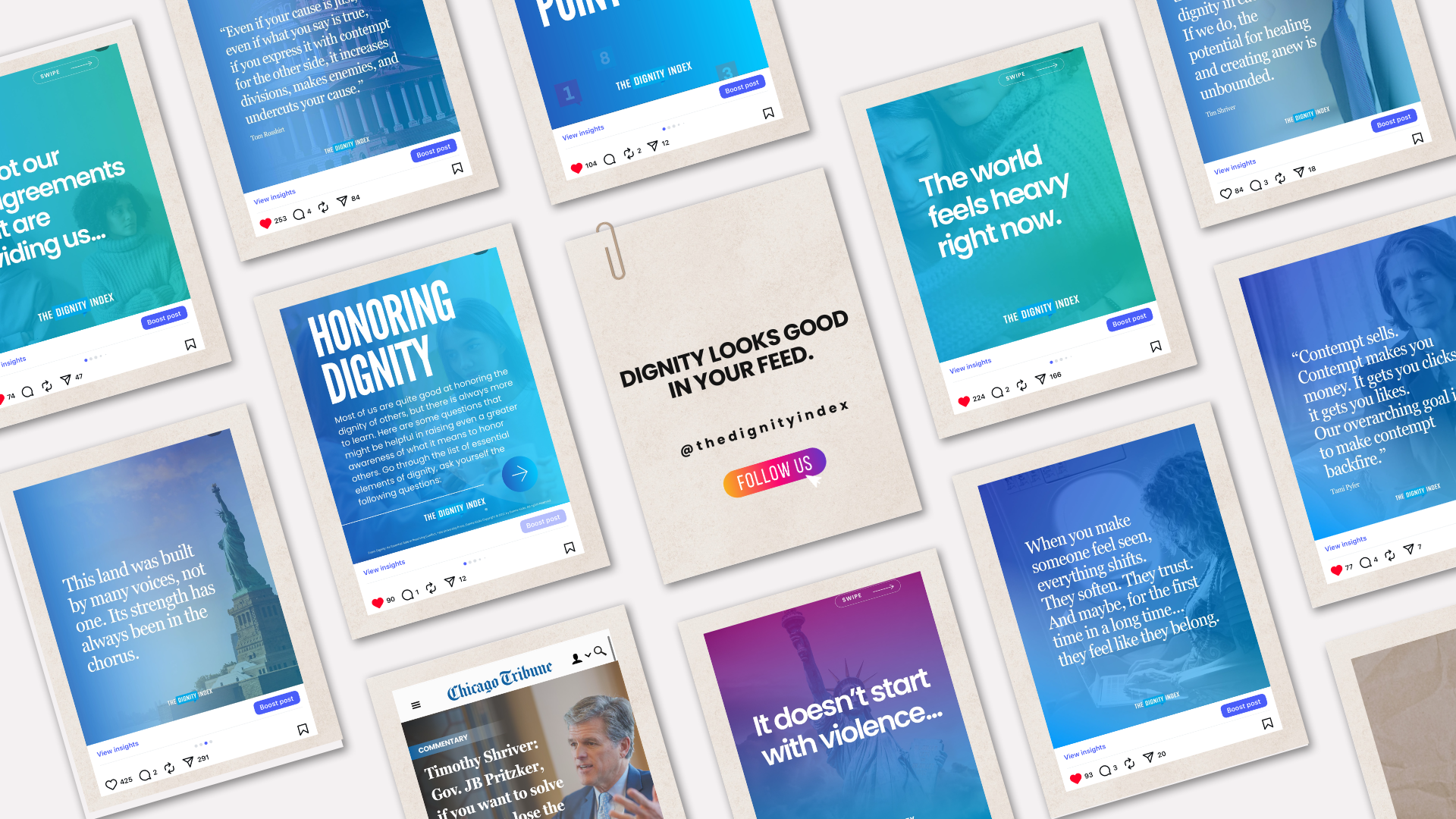I want to tell you two favorite stories of mine, and they’re favorites because of the goodness in them. They’re snapshots of people in the upper reaches of the Dignity Index – at SEVEN and EIGHT, where we see human beings at their best.
When we’re at SEVEN, we can put ourselves in the background and put others in the foreground. Instead of pushing our views and concerns, we can put our thoughts aside for a moment and say, “Tell me what you’re concerned about. Tell me what you’re going through.”
At EIGHT, we're entirely tuned in to the other person. We don’t feel superior. We don’t look down on anyone. We’re able to listen to the other side without our judgments, biases, and prejudices distorting what we hear and making us defensive.
Marshall Rosenberg, who earned his PhD in psychology under the famed Carl Rogers, has said “No matter what words people use … we search for the real needs of the other person, no matter how they are expressing themselves.”
Imagine that – someone is yelling insults at you, or giving you bad news, and you’re taking in their words, but listening for their needs. This is what’s happening at SEVEN and EIGHT. It’s what’s happening in these two stories.
The first story I read in a book called, The End of Your Life Book Club. In the book, the author Will Schwalbe, a friend and mentor of mine, describes the books he read with his mother as she fought her battle with cancer, which had started in her pancreas and had spread to her liver before it was diagnosed.
During one scene, Will was with his mom in an examining room in the doctor’s office as the oncologist read the results of the latest scan. His mom had prepared a list of questions for the doctor and at the bottom of the list she’d written “other questions.” After the doctor presented her report on the size of the tumors and the effects of the chemotherapy, Will’s mom asked questions about travel and future treatment and the time she had left.
Then at the end of the discussion, Will remembered the phrase “other questions” at the bottom of the page and prompted his mom, “Mom, do you have any other questions for the doctor?”
“Yes, I do,” she said. “Are you taking a holiday this year, Doctor O’Reilly? I hope you’re getting home to Ireland to see your family.”
***
The next story comes from the book The Hag, a biography of legendary country singer Merle Haggard. In the middle of the book, the author picks up the voice of Merle’s daughter Kelli, telling a story about herself when she was seven years old.
Kelli had spent her young life first living with her birth mom and then with Merle’s mom, and then she found herself suddenly in a mixed family, living in a house with Merle’s four kids and the two kids of Merle’s wife, country singer Bonnie Owens. Speaking of Bonnie, Kelli said of her new stepmom:
“Our relationship didn’t start out well. I remember we were at the new house, and Dana, my older sister, who was twelve, in the seventh grade, was angry about everything and a little jealous of me because I was younger and, she thought, got more attention than she did. Not long after we moved in, Dana told me to take some tomatoes that were on the table and smear them all over the counter. ‘She won’t get mad at you,’ she said.
I did exactly what she told me. Bonnie came down from upstairs a few minutes later, saw the mess and said, ‘Who did this?’ I said, defiantly, ‘I did!’ She asked me why and I said, ‘Because you don’t belong here!’ Bonnie cleaned up the mess, then got down on her knees, looked at me and said, ‘You know what? I love you. There’s nothing you can do that will make me not love you.’ And after that, everything was fine. Bonnie was one of the kindest, gentlest, most loving women I’ve ever known.”
**
Sometimes when I’m talking about the Dignity Index and I get to SEVEN and EIGHT, people roll their eyes, thinking it’s out of reach. It is lofty, for sure, but it’s not out of reach. This is what we’re capable of. This is us at our best and highest. This is where humanity and divinity meet.
I don’t think there is anyone who doesn’t fall silent with respect over these kinds of stories – partly out of admiration, but partly also out of obligation. The more we put a spotlight on the love human beings are capable of, the more people will feel a sense of duty to rise above themselves.
That’s what the dignity movement is about.
Tom

